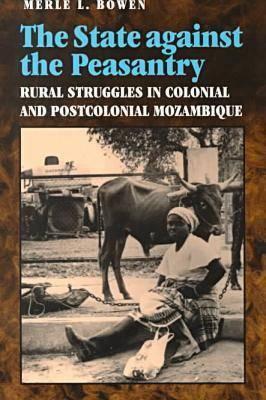Overview
In 1975, the Front for the Liberation of Mozambique (Frelimo) led the country to independence after a ten-year guerilla war against Portuguese colonial rule. Peasants were essential to the victory, but once in power Frelimo evolved from a popular liberation movement into a bureaucratic one-party state whose policies proved to be as inimical to the peasantry as those of the Portuguese colonial regime. These policies not only characterized the socialist phase of Frelimo rule; they continued during the period of economic and political reform that took place in the 1990s under the auspices of the International Monetary Fund. Merle L. Bowen's book offers a fresh assessment of the impact that such policies, pursued by postindependence states and NGOs alike, have had on the peasantry and agricultural production in Africa. In contrast to accounts that blame the state, the elite, or the peasantry itself for the agricultural crisis in postcolonial Africa, Bowen argues that Mozambique's decline in production is rooted in policies established during colonialism and continued by Frelimo. By tracing shifts in policy over a longer period than previous studies and across changing regimes, Bowen provides solid evidence that the continuation of colonial policies under the Frelimo government alienated the peasantry and contributed to internal conflict. Bowen refuses to treat the peasantry as a homogeneous mass. Drawing on oral data, archival research, and published accounts, she charts the rise and fall of a stratum of middle class agricultural producers in southern Mozambique that she deems central to the problem of food production. Like those of the colonial government, Frelimo's anti-peasant policies are rooted in a desire to prevent this middle class from becoming politically and economically independent and thereby acting as a counterweight to state power. To address the agricultural crisis, Bowen calls for a reconsideration of Mozambican and IMF policies to support rather than suppress capital accumulation within this rural middle class. Through its careful consideration of the peasantry and the role of NGOs, The State Against the Peasantry offers a nuanced understanding of the development process that has taken place in Mozambique and other southern African countries since independence.
Full Product Details
Author: Merle L. Bowen
Publisher: University of Virginia Press
Imprint: University of Virginia Press
Dimensions:
Width: 15.70cm
, Height: 1.70cm
, Length: 23.50cm
Weight: 0.436kg
ISBN: 9780813919171
ISBN 10: 0813919177
Pages: 320
Publication Date: 29 March 2000
Audience:
College/higher education
,
Professional and scholarly
,
Undergraduate
,
Postgraduate, Research & Scholarly
Format: Paperback
Publisher's Status: Active
Availability: Manufactured on demand

We will order this item for you from a manufactured on demand supplier.
Author Information
Merle L. Bowen is Associate Professor of Political Science at the University of Illinois at Urbana-Champaign.




